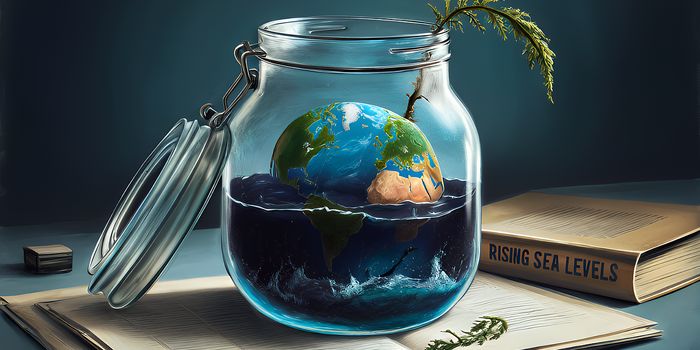How much can 1 more degree really hurt?
How much can 1 degree really hurt? A new study published in Current Biology has just answered that question, and the results are not stellar. It turns out that a warming of just 1 or 2 degrees Celsius in the Antarctic Ocean has huge impacts on marine ecosystems, particularly marine assemblage, which almost doubled growth rates.
The aim of the study was to get more concrete answers in regards to predictions about our future planet – which will likely be 1, 2, or even several degrees warmer. In order to adequately test this idea, the team of researchers didn’t use abstract computer models or graphing projections. They literally heated an area of seabed around the Rothera Research Station using heated settlement panels in order to mimic rising ocean temperatures.
The results from the experiment showed that the area of ocean warmed to a 1°C increase experienced a boom of bryozoan (Fenestrulina rugula) which dominated the community to such an extent that overall species diversity and evenness plummeted. In this 1°C increase scenario, certain marine worms, Romanchella perrieri, also grew to an average size 70% larger than those under ambient conditions, the researchers report. Such growth of a few species highlights the ultimate truth of climate change: some species will thrive, while others may not survive.
The responses of organisms in the 2°C increase scenario had more mixed results, with growth-rate responses varying among species, ages, and seasons. “Species generally grew faster with warming through the Antarctic summer. However, different responses among species were observed in March, when both food availability for suspension feeders and ambient temperature declined,” Science Daily explains.
"I was quite surprised," says Gail Ashton of the British Antarctic Survey and Smithsonian Environmental Research Center. "I wasn't expecting a significant observable difference in communities warmed by just 1°C in the Antarctic. I have spent most of my career working in temperate climates where communities experience much greater temperature fluctuations and [I] wasn't expecting such a response to just 1°C of change."
So, what’s the take-home message? The researchers say the data shows the impacts we can anticipate climate change will have on polar marine ecosystems. They plan to extend this knowledge and experimental method into other regions of the ocean, such as the Arctic, in order to analyze how warming will affect those locations and communities.
Sources: Science Daily, Current Biology










